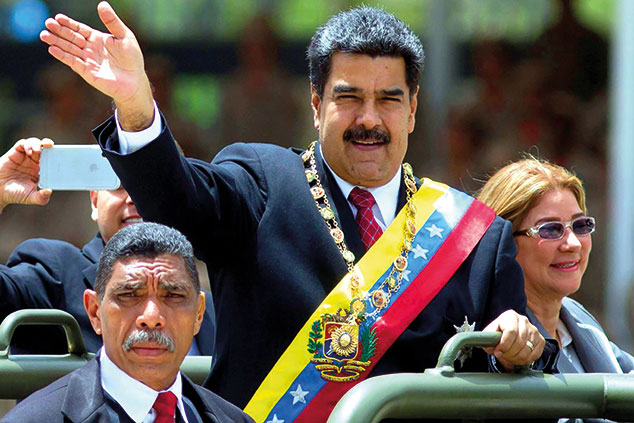
“Venezuela is undergoing an economic collapse without precedent outside of war or the fall of the Soviet Union,” says Ricardo Hausmann in the Financial Times. In the midst of this “havoc”, President Nicolás Maduro has “finally decided to present something that has a family resemblance with an adjustment programme”. His plans include a devaluation of the currency that will bring the official value of the bolívar (about 250,000 per dollar) in line with the black-market rate (about six million), as well as raising some taxes and reducing fuel subsidies in an effort to shrink the budget deficit.
Sadly, Maduro “has set up his plan to fail”, says The Economist. A key part of it is that the revalued bolívar will be pegged to a new cryptocurrency called the petro that is backed by Venezuela’s oil reserves. But “since no one knows how the petro will work and nothing binds the new currency to it, this peg inspires little confidence”.
His promise to eliminate the budget deficit is undercut by a recent tax break for the oil industry and a rise in the minimum wage, which “will swell the public-sector wage bill, stoke even more inflation and bankrupt firms”. There is also “talk of tougher price controls, which would further discourage production”. Overall, these changes add up to “hocus-pocus”, not the “real reform” the country needs.
A humanitarian crisis
“It’s ludicrous that Venezuela should be in this position when it has the largest proven oil reserves in the world, ahead of Saudi Arabia and Canada,” says Caitlin Morrison in The Independent.
Yet the reality is that economic woes have now turned into a humanitarian disaster: three-quarters of Venezuelans lost an average of 11kg in body weight last year. Foreign governments are reluctant to help because Maduro has “isolated himself from other nations with his repressive, authoritarian regime”, but such principles “make little difference to a starving populace” that needs food and humanitarian aid quickly. “Now is time for action.”
Limited options
Venezuela certainly needs help, says The Times. But “there are strict limits, given the kleptocratic nature of the rule of Maduro, to how far humanitarian aid from its American neighbours can help”. For example, “an international financial bailout would simply be used to shore up the regime or pay its creditors, principally the Russian and Chinese governments and private bondholders”. So “there is precious little that foreign governments and humanitarian organisations can do to help while Maduro holds, and abuses, power”.
Yet as the government “grows increasingly despotic, a crack-up is accelerating”, says Bloomberg – and the world remains unprepared for the consequences. A violent overthrow of Maduro “would risk worse outcomes”, such as civil war. “The rest of the world needs to do all it can to help steer Venezuela to a better future and, at the same time, prepare for the economic and humanitarian crisis it may be unable to prevent.”